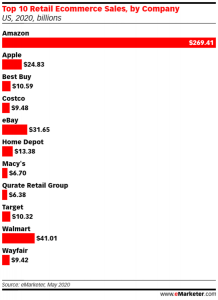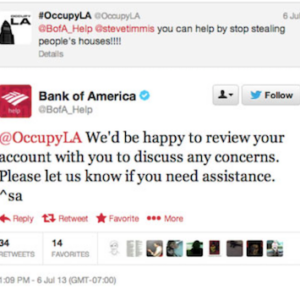When it comes to solving the chargeback management problem for merchants and issuers, it’s not that the data doesn’t exist that would improve the payments ecosystem. What’s missing is access to the right data at the right time.
To understand why real-time data is so important, it makes sense to start with some background.
While the chargeback system was designed with good intentions (to protect the consumer from fraudulent charges) the unintended consequence of making a process so seamless is that consumers have found just how easy it is to game the system.
It’s too easy for a consumer to dispute a transaction — whether or not the purchase is legitimate or not. With as much as 86 percent of consumers bypassing the merchant and going straight to the issuer to question or dispute a charge, the merchant often learns about the dispute when it is too late – that’s when lost sales, the fines, penalties and extra costs really start to add up.
Merchants are left in reactive mode and left in most instances in a race to manage refunds for a dispute that should have easily been solved on the first call by the issuer. The problem? The issuer has no insight into the disputed transaction detail – leaving them with no recourse but to file a fraud claim or issue a chargeback.
Somehow, issuers have become the first line of defense against chargebacks, but are ill-equipped by merchants to actually resolve the dispute before it escalates. From there, it only gets worse.
The Root of the Problem
By and large, the data needed to resolve disputes faster exists. The real problem is that it is siloed. The merchant has order details, but the issuer doesn’t. Yet, when most consumers bypass the merchant and go direct to the issuer when there is a problem, the issuer bears the brunt of the expense. When a consumer calls to question or dispute a charge, the issuer isn’t equipped with the right information at the right time to validate the charge or resolve the cardholder’s inquiry on the first call.
Siloed data and lack of information sharing between merchants and issuers has created a broken, expensive and inefficient process that costs merchants and issuers time, money and resources — not to mention the additional costs that are attached to chargebacks — like excessive refunding or lost merchandise for merchants, and for issuers, increased operational costs and dealing with increased downstream representment volume.
Lack of the Right Data at the Right Time Creates Additional Problems
Before fully understanding how and why real-time data truly matters in the chargeback process, and how the lack of data integrity and information is hurting merchants’ and issuers’ bottom lines, there are five more problems that complicate a potential solution:
- Chargeback disputes – These are not going away anytime soon, according to Aite.1 In the post-EMV CNP environment, fraud and chargebacks are rapidly increasing as more and more commerce (and consequently fraud) shifts from offline to online channels.
- Descriptor confusion – Often consumers don’t understand the details on their statement and often report the item as fraud — also known as friendly fraud. There isn’t enough information being communicated by the merchant to the issuer and therefore not enough information represented in that consumer’s billing statement.
- Timing delays and confusion – The traditional chargeback process involves a delay between the time the consumer inquires with the issuer and when the merchant actually learns about the chargeback. It can take merchants up to 180 days before they even learn about chargebacks. The delays in the process often make it too late to prevent the fulfillment of merchandise orders.
- Consumer frustration – The longer it takes to resolve a dispute, the angrier the cardholder becomes. Frustrated customers tend to churn much faster than happy customers. This is very costly when you consider that the average cost to acquire a new customer is 5-10 times more than retaining an existing customer.
- Unintended consequences of digital access – Thanks to mobile banking, it’s easier than ever to check our card statements in real time. Unfortunately for merchants, it also means that this lack of friction (and an always connected society) gives consumers an easier and faster way to dispute a purchase – without giving the merchant the opportunity to legitimize the transaction.
As a result, operational costs from chargebacks are impacting merchants’ and issuers’ profits by up to 20 percent.2
Without enough data, confusing billing descriptors, poor communication between merchants and issuers, and a lack of timely information being shared across the payments ecosystem, more friction is being created along the entire lifecycle of a single transaction. Collectively, these have generated painful – but avoidable – fraud instances, lost customers, lost sales/products for merchants. The current payments ecosystem is not designed in a way that lets merchants and issuers collaborate and communicate efficiently.
Disconnected Issuers and Merchants
One of the biggest problems in the chargeback management process today is that issuers and merchants each have unique sets of data that are not shared with the other. Merchants have order details and issuers have dispute resolution outcome data.
It’s obvious that both issuers and merchants have a vested interest in improving collaboration. By sharing data, the promise of dramatically reduced chargeback volume — and the associated costs (for merchants — penalties, fines, time and lost merchandise & for issuers — operational costs and increased downstream representment volume).
ORDER INSIGHT — Enables the Right Information for the Right Parties at the Right Time
To dramatically reduce chargeback dispute volume, Verifi’s Order Insight makes merchant order details available to the issuer’s contact center personnel in real time to support the legitimacy of the sale on the first call. When a cardholder calls the issuer to dispute a charge, the transactions are available to call center personnel to quickly resolve the confusion.
With Order Insight in place, the merchant wins immediately. The merchant wins immediately because simple disputes that would normally become chargebacks are resolved on the first call by an informed issuer. The issuer also wins because the dispute was resolved on the first call, preventing escalating operational expenses for managing a process that should belong to the merchant to begin with.
Order Insight exposes critical transaction details to the issuer’s call center personnel including:
- Device name
- Product/service details
- Device fingerprint
Merchant name
- Device IP address – and more
By connecting cardholders, merchants and issuers, Order Insight delivers the right information, to the right parties at the right time, to resolve billing confusion and disputes that lead to lost sales, friendly fraud, and unnecessary chargebacks — all of which drain your profits.
The simple act of sharing data has deep downstream impacts on both issuer and merchant operations when it comes to identification of fraud/friendly fraud and chargebacks.
- Dispute volume reduced –With chargebacks increasing as the result of EMV, merchants are seeing greater dispute volume. Order Insight reduces dispute volume across all channels (offline, online, fraud, non-fraud).
- Cardholder confusion resolved – When a cardholder is confused, call center personnel have immediate access to transaction detail and can prevent simple confusion from becoming a chargeback.
- Solve timing complications – By stopping chargebacks on the first call, simple disputes can be diffused, preventing the transaction from escalating into a chargeback.
- Consumer frustration resolved – Immediate satisfaction reduces cardholder frustration as disputes are resolved quickly – without frustrating back and forth between the issuer and merchant.
Through the use of real-time collaboration, unnecessary delays and confusion can be eliminated. Moreover, through the use of better data, more information and more detailed billing descriptors, response to chargeback inquiries can be better handled by the issuer.
With access to real-time data, issuers and merchants now have the opportunity to reduce chargeback volume. The complexities and costs associated with chargebacks will likely always exist — but a fast, frictionless means of sharing information and validating the legitimacy of purchases on the first call will have a major impact on issuer and merchant operations.
- http://aitegroup.com/report/chargebacks-and-false-declines-cards%E2%80%99-ugly-underbelly
- http://www.verifi.com/
(51)
Report Post





